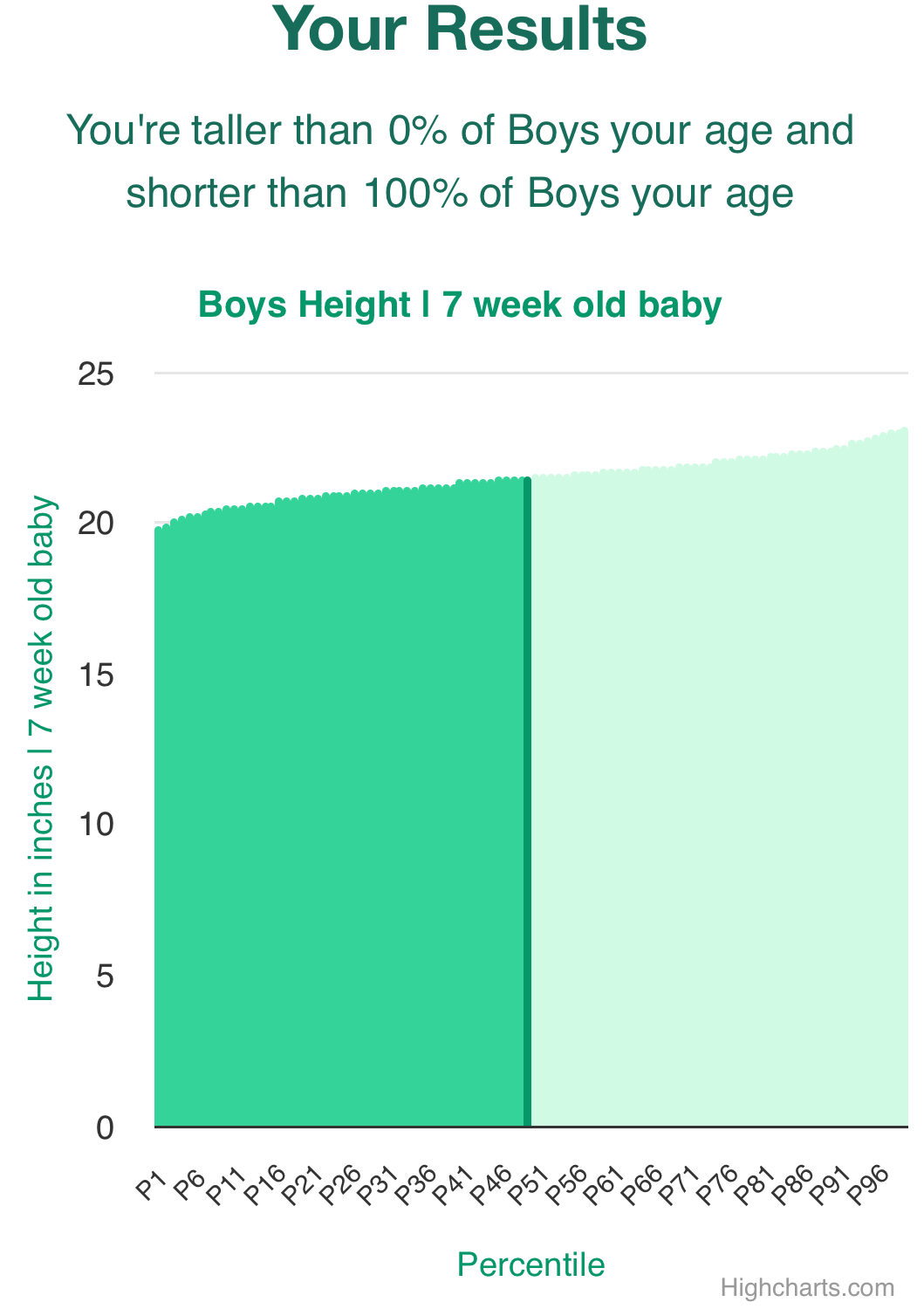Boys Weight chart in lbs for babies 7 week old baby

General Summary: 7 week old baby boys weight
In most cases, weight measurements for 7 week old baby boys will be in the range between 6 and 10 lbs. The average weight for 7 week old baby boys is 7 lbs, according to the CDC and anonymized data from users.
All Results
Enter your weight measurements above to see how they compare
So far, we have recorded [0] weight measurements for 7-week-old-baby boys on LifeMeasure!
(chart updates daily)
See more ages